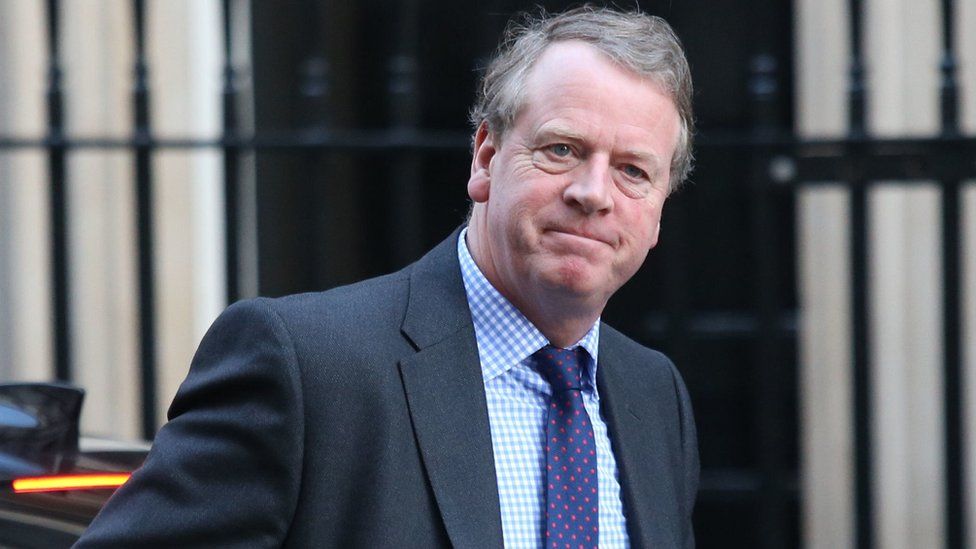
The Scottish and UK governments are going head-to-head in court over controversial gender reform laws.
The legislation was passed by the Scottish Parliament last year, but then blocked by UK ministers over its potential impact on equality laws.
The Scottish government is seeking to overturn that decision with a legal challenge at the Court of Session.
There will be three days of legal arguments, but the case could ultimately end up in the Supreme Court.
UK ministers used their veto powers for the first time to block the Gender Recognition Reform (Scotland) Bill, sparking fury from their counterparts in Edinburgh – who say devolution is being undermined.
What are the proposed changes?

The legislation passed by MSPs in December 2022 would streamline the process for obtaining a gender recognition certificate – the avenue for changing one’s legally-recognised sex.
The reforms would see applications for a certificate handled by Scottish registrars, rather than a UK panel, and would remove the need to obtain medical reports with a formal diagnosis of gender dysphoria.
The plans would also cut the amount of time applicants need to have lived in their acquired gender from two years to a matter of months, and cut the age at which people can apply to 16.
After a lengthy debate the reforms were agreed by MSPs by a margin of 86 to 39, with members of all parties voting in favour.
But every one of those changes have been highlighted by the UK government as removing “important safeguards”.
How was it blocked?

The UK government used section 35 of the Scotland Act to prevent the bill receiving royal assent – essentially being signed off by the King and becoming law.
This is a power which was written into the devolution settlement to give the sovereign parliament at Westminster a veto in certain circumstances.
But it was a highly controversial move, given both the sensitivities of the legislation involved and the enmity between the administrations in Edinburgh and London.
This row is an unprecedented one, because previous disputes have been about whether certain topics are within Holyrood’s remit or not.
Here, it’s broadly accepted that MSPs were acting within their powers when they passed the bill. What’s in question is how the law interacts with UK legislation, and whether it could have consequences which would echo out across the rest of the UK.
That means the Scottish government’s main route of challenge is a judicial review at the Court of Session.
What are the UK government’s arguments?
Broadly, the issue here is the way that the 2004 Gender Recognition Act – which set up the certification process which is being reformed – is intertwined with the 2010 Equality Act, which MSPs are not allowed to change.
The 2010 Act applies in Scotland, England and Wales, setting out different “protected characteristics” including those of sex and gender reassignment, and underpins the rights and protections afforded to these groups.
The UK government argues that the 2010 Act was “carefully drafted” to work alongside the 2004 one, and that it is “highly problematic” to have two different gender recognition systems within the UK.
An example would be a single-sex association or club, which is allowed to have exclusive membership rules under the protections of the Equality Act – for example a support group for women who have been victims of sexual violence.
In the UK government argument, such groups might have to have different membership rules north and south of the border; the new rules would “significantly change the profile and number of individuals that associations will be unable to exclude”.
It also argues that groups could be at “greater risk of being found to be operating unlawfully”, and could end up closing down due to perceived risks.
A range of other potential issues have also been listed by the UK government – in these cases, law officers tend to chuck in every possible argument in the hope that one of them will stick.
These range from the ability of single-sex schools to exclude 16 and 17-year-olds who would now be eligible to change their legal sex, to the administration of UK-wide tax, benefit and pension systems.
They also say that making the process easier could “significantly” increase the risk of fraudulent applications from those with “malicious intent”, which could lead to people “no longer feeling safe in any sex-segregated setting and self-excluding from such settings even though they could significantly benefit from them”.
How has the Scottish government responded?

The Scottish government’s response from the start was “see you in court” – first under Nicola Sturgeon and now under Humza Yousaf.
This is in part in defence of the legislation itself, but also on the principle of testing the limits of the section 35 veto.
There have been various political arguments on that front – about the move flying in the face of the democratic will of the Scottish Parliament – but it is the legal arguments that will prove critical.
On that front, their task is to show that the order has not met the tests set out in the Scotland Act – namely that the bill makes a modification of the law as it applies to reserved matters, and that the Scottish Secretary did not have “reasonable grounds” to believe it would have an adverse effect on the operation of UK-wide law.
So they basically have to show that the UK government is wrong about what the Holyrood bill actually does, and that his concerns about it are not reasonable.
Thus, they are arguing that the concerns raised by Alister Jack are “irrational” – it sounds rather personal, but they mean it in a legal sense.
The Scottish government says that the examples provided by Mr Jack are “abstract and hypothetical”, and that the chances of them actually coming to pass are so remote that they can’t have reasonably given him cause to take such an unprecedented step.
They also say he failed to publish his detailed reasons on time, and that the UK government should have raised its concerns earlier in the passage of the bill.
What will happen next?

The case will start at the Court of Session in Edinburgh, with a judicial review into whether Mr Jack was entitled to block the bill.
Whoever loses that case will be entitled to appeal to the next level of Scottish court – the Inner House of the Court of Session.
And whoever loses that appeal will then have the option of taking the case to the Supreme Court in London.
So this case may well play out over a series of hearings over a number of years.
It is hard to judge exactly how the arguments will go, because we are in completely uncharted territory.
There is no precedent to lean on in terms of which parts of the legal test are more important, or how easy it might be to satisfy judges as to what “reasonable grounds” or an “adverse effect” really are.
But judges will no doubt be picking over the reasons set out by Mr Jack in great detail, to see whether he was really being “irrational”.
For all of the political rhetoric around this row, it is those points of law which will ultimately decide the fate of these reforms.
Source: bbc.co.uk






Be the first to comment